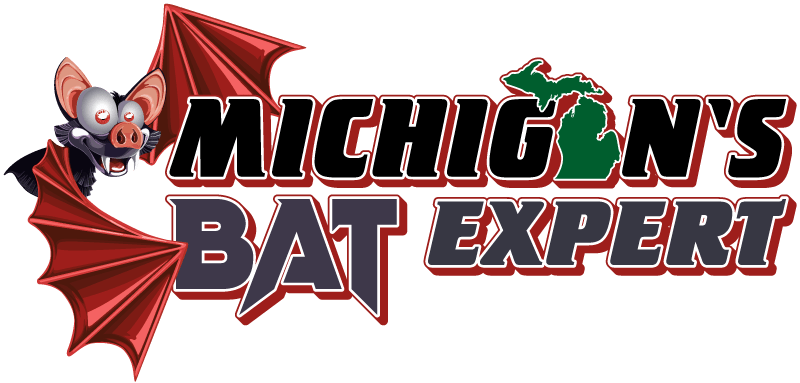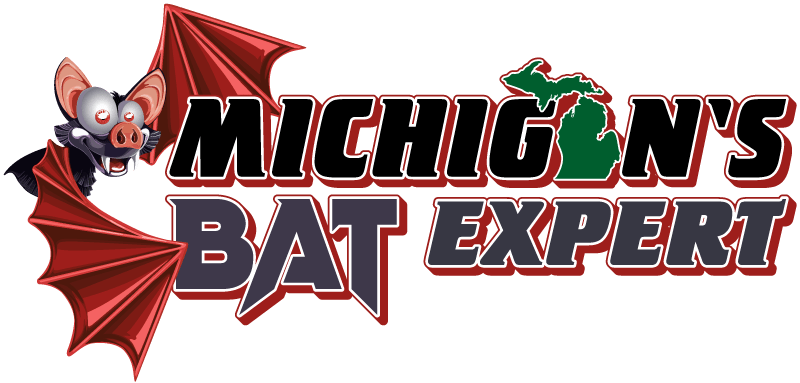Michigan Squirrel Removal
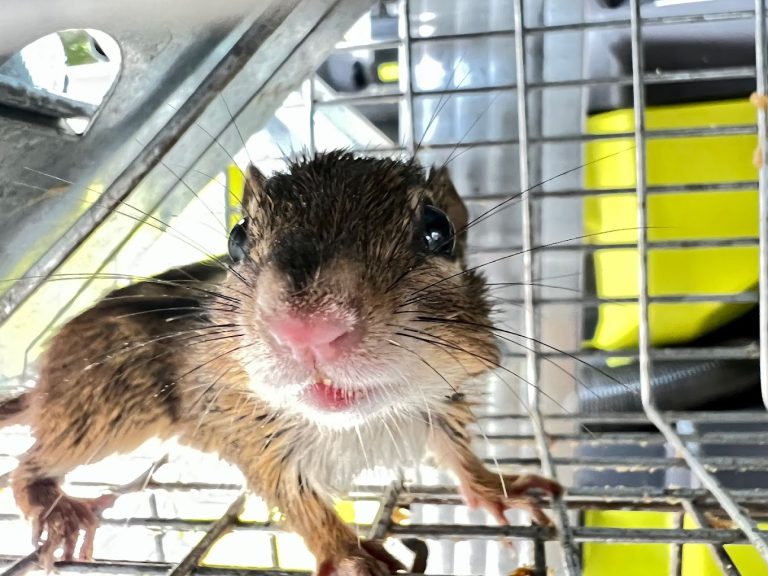
Squirrels may seem harmless, but when they invade homes and businesses, they can cause serious structural damage and fire hazards. If you’re hearing scurrying noises in your attic or walls, Michigan Bat Expert provides professional, humane squirrel removal and exclusion services to protect your property.
EXCELLENTTrustindex verifies that the original source of the review is Google. Fast and responsive!Trustindex verifies that the original source of the review is Google. We used Michigan Bat Expert for skunk removal. Britney was very helpful on the phone to give me options and schedule. The tech that arrived to pick up our pre-trapped skunk was very friendly and knew exactly what to do. We will be telling everyone in our subdivision about them! Great customer service, reasonably priced and you feel good knowing the little critters are being relocated to new land.Trustindex verifies that the original source of the review is Google. Excellent Service and very friendly staff Quick response Highly recommendTrustindex verifies that the original source of the review is Google. This is such a great service. I love the fact that the take the animals and release them instead of euthanizing them. The team is awesome and very professional. I try trapping myself but they know all the right things to do. I recommend Michigan bet expert to anyone that has a problem with raccoons they know their stuff?Trustindex verifies that the original source of the review is Google. Did a good job explaining options and issues. Completed work quickly and did a visual inspection with me. Explained their job garuatee. Easy to work with and were very efficient.Trustindex verifies that the original source of the review is Google. Professional and prompt. Answered all my questions and explained everything they did thoroughly.Trustindex verifies that the original source of the review is Google. Great service as always, and reasonable pricesTrustindex verifies that the original source of the review is Google. A great company I found them on google, great service. I will always have them do service for me as long as they’re in business.
Why Squirrels Are a Problem in Michigan
Michigan is home to several squirrel species, including Eastern gray squirrels, fox squirrels, and red squirrels. These agile climbers often find their way into attics, chimneys, and crawl spaces in search of warmth and shelter.
Common Issues Caused by Squirrels:
Chewed Electrical Wires: A major fire hazard in homes and commercial buildings.
Insulation Damage: Nesting squirrels tear up insulation, reducing energy efficiency.
Droppings & Urine Contamination: Can lead to foul odors and health risks.
Roof & Siding Damage: Squirrels create entry points by gnawing on wood, shingles, and vents.
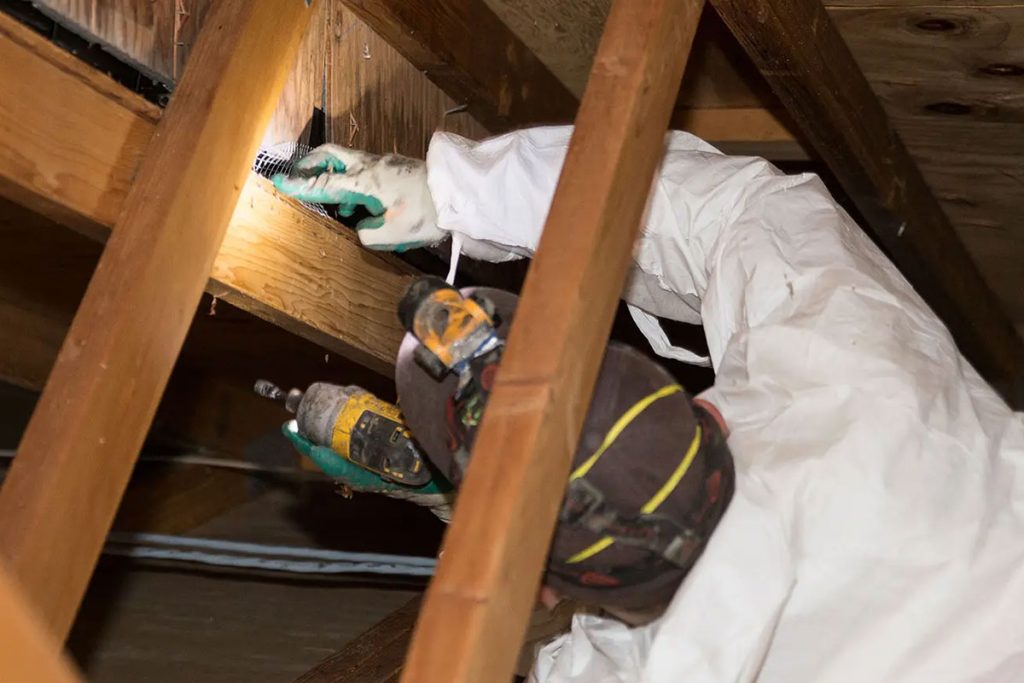
How to Identify a Squirrel Infestation
Signs of a squirrel problem include:
Scratching or running noises in the attic or walls during early morning and late afternoon.
Chewed entry points around soffits, fascia boards, or vents.
Nesting materials like leaves and shredded insulation in attic spaces.
Droppings or a strong urine odor in your home or garage.
If you suspect a squirrel infestation, it’s essential to address it promptly to prevent further damage.
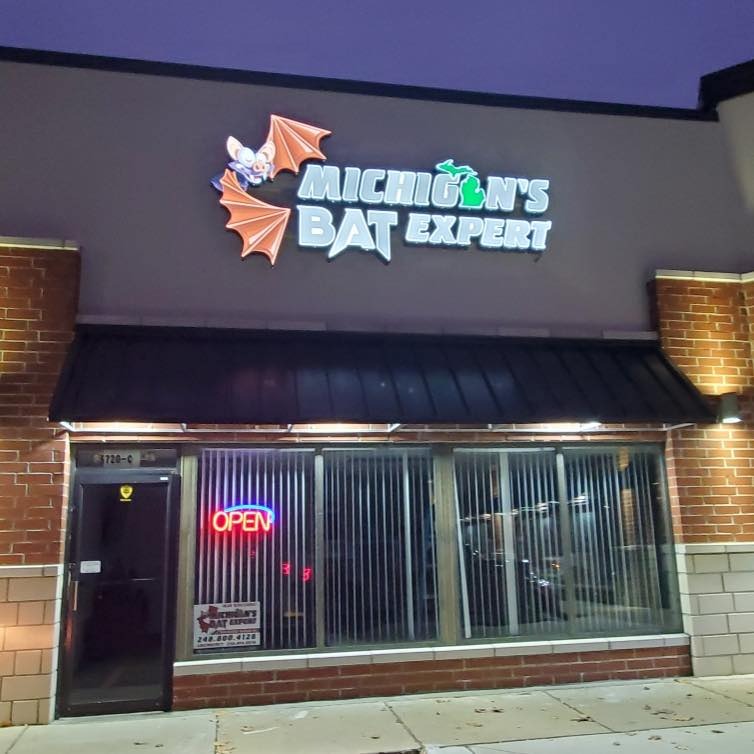
Our Professional Squirrel Removal Process
1. Comprehensive Inspection
Our experts conduct a detailed inspection to locate entry points, nesting sites, and damage.
2. Humane Squirrel Trapping
We use safe, humane traps to capture and remove squirrels without harm.
3. Squirrel Exclusion & Prevention
Once the squirrels are removed, we seal all entry points with durable materials to prevent re-entry.
4. Damage Cleanup & Restoration
Squirrels leave behind contamination that can pose health risks. We provide attic cleaning, insulation replacement, and sanitization services to restore affected areas.
Michigan’s Squirrel Population & Legal Considerations
Squirrels are protected under Michigan law, and removal must be handled ethically and in compliance with DNR (Department of Natural Resources) regulations. Our team is fully licensed and trained to ensure legal and humane squirrel control.
Notable Squirrel Facts in Michigan:
Michigan is home to Eastern gray squirrels, fox squirrels, and red squirrels, each with different nesting behaviors.
Squirrels can jump up to 10 feet, making it easy for them to access rooftops and attic spaces.
Their teeth grow continuously, leading them to gnaw on wood, wires, and even plastic pipes.
Squirrels can have two litters per year, making infestations grow quickly if not addressed.
Notable Raccoon Facts in Michigan:
Raccoons are found throughout Michigan, from rural farmlands to urban centers like Detroit, Grand Rapids, and Lansing.
They are highly intelligent, capable of solving complex problems to access food and shelter.
Raccoons are opportunistic feeders, consuming everything from small rodents to fruit and pet food.
Due to urban expansion, raccoons have become more dependent on human structures for nesting.
Protect Your Home with Michigan Bat Expert
Don’t let squirrels drive you nuts in your home. Michigan Bat Expert provides expert squirrel removal, trapping, and exclusion services to keep your property safe and secure.
Call us at (248) 923-4762 to see how we can help.
Frequently Asked Questions on Squirrel Removal in Michigan
1. How do I know if I have squirrels in my attic or walls?
Squirrels are most commonly found in attics, walls, chimneys, and soffits, where they seek shelter and build nests. Some of the most common signs of a squirrel infestation include scratching or scampering noises in the early morning or late afternoon, as squirrels are most active during these times. You may also notice chewed entry points near roof edges, vents, or eaves, as squirrels can gnaw through wood, plastic, and even aluminum. Other indicators include droppings in attics or crawl spaces, shredded insulation or nesting materials, and a strong musky odor from their urine. If you see squirrels frequently running along power lines or near your roof, they may already be inside your home.
2. Are squirrels dangerous to my home and health?
While squirrels may seem harmless, they can cause significant property damage and health risks if they invade your home. One of the biggest dangers is their tendency to chew on electrical wires, which can create a serious fire hazard. They also damage insulation, wooden beams, and drywall as they build nests. Squirrels can introduce parasites like fleas and ticks, which can spread to pets and humans. Additionally, their droppings and urine can lead to respiratory issues if left uncleaned. Professional squirrel removal is essential to prevent costly damage and potential health risks.
3. What attracts squirrels to my home in Michigan?
Squirrels are drawn to homes for three main reasons: food, shelter, and warmth. If you have bird feeders, pet food left outside, or unsecured trash bins, squirrels may be attracted to your property. They also seek shelter in attics, garages, and crawl spaces, particularly during Michigan’s colder months when they need a warm nesting site. Trees close to your roof provide easy access for squirrels, allowing them to find entry points near damaged soffits, vents, or rooflines. Proper exclusion techniques, such as sealing entry points and trimming tree branches, can help deter squirrels from entering your home.
4. How do professionals remove squirrels from homes?
Wildlife control experts use humane and effective methods to safely remove squirrels and prevent them from returning. The process typically begins with a detailed inspection to locate entry points and nesting sites. Trained professionals then use one-way exclusion doors that allow squirrels to leave but prevent re-entry. In cases of severe infestations, live trapping and relocation may be necessary. Once all squirrels are removed, the entry points are sealed with durable materials like metal flashing or hardware cloth to prevent future access. Many companies also offer attic cleanup and sanitization services to remove squirrel droppings and repair insulation damage.
5. Is it legal to trap and relocate squirrels in Michigan?
Yes, but Michigan has regulations governing the trapping and relocation of squirrels. According to the Michigan Department of Natural Resources (DNR), squirrels can only be trapped and relocated within a one-mile radius of where they were captured, as moving them farther could disrupt local ecosystems. Additionally, certain permits may be required for trapping squirrels on public land. Due to these legal restrictions, it’s best to work with a licensed wildlife removal expert who can ensure the process is done legally and ethically.
6. How can I prevent squirrels from coming back?
Preventing squirrels from returning involves a combination of exclusion techniques and habitat modifications. First, inspect your home for gaps, cracks, or holes that squirrels can squeeze through and seal them with durable materials like steel mesh or caulking. Trim tree branches at least 8-10 feet away from your roof to limit access. If you have bird feeders, consider using squirrel-proof designs or placing them away from your house. Installing chimney caps and vent covers can also prevent squirrels from nesting inside. Regular home maintenance and seasonal inspections can help keep your home squirrel-free.
7. When are squirrels most active in Michigan?
Squirrels are active year-round, but their activity peaks during spring (March-May) and fall (September-November). These seasons mark their breeding periods, and during this time, they aggressively seek out nesting sites, which often leads them inside attics and walls. In winter, squirrels stay in their nests to conserve energy, but they will still be active if food sources are available. If you notice an increase in squirrel activity near your home, it may indicate a nest inside your attic that should be removed before the squirrels reproduce.
8. How much does squirrel removal cost in Michigan?
The cost of professional squirrel removal varies based on the severity of the infestation, the number of squirrels, and the amount of damage repair needed. On average, squirrel removal services in Michigan range from $200 to $600. If extensive exclusion work, damage repair, or attic restoration is needed, costs may be higher. Some wildlife control professionals offer free inspections to assess the situation and provide an accurate quote. To ensure effective and long-term squirrel control, hiring a licensed and experienced wildlife removal specialist is recommended.
Our Services
Attic Restoration
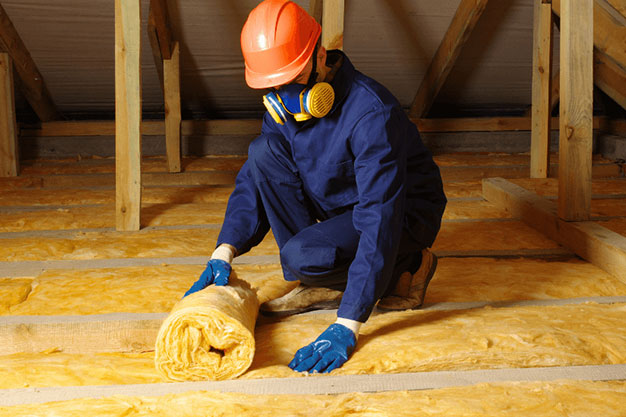
Live Bat Exclusion
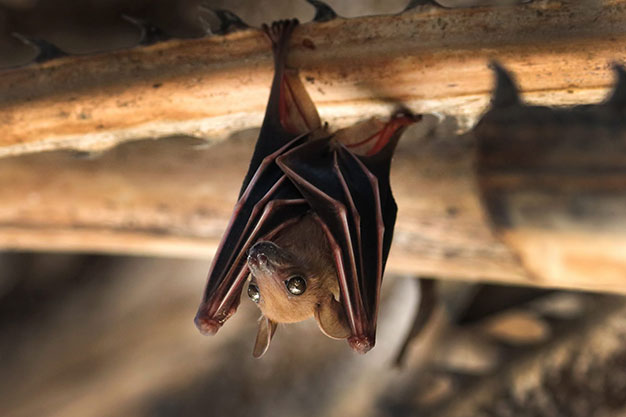
Spot Cleaning
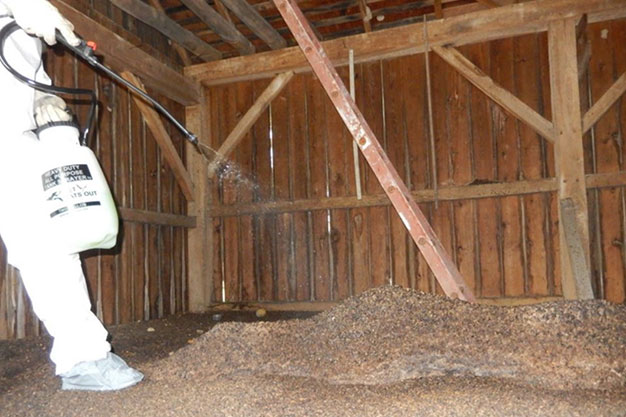
Wildlife Relocation
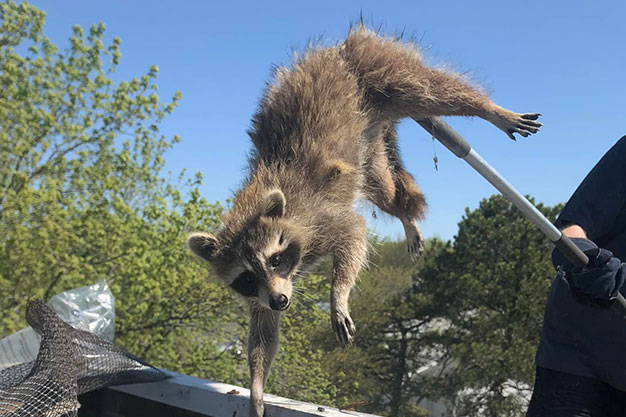
Mice Exclusion & Prevention
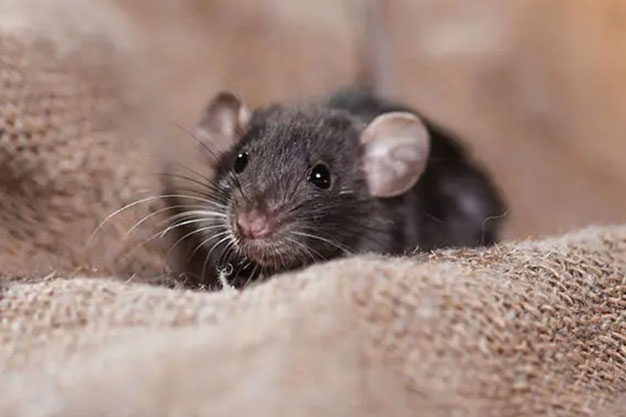
Snake Removal
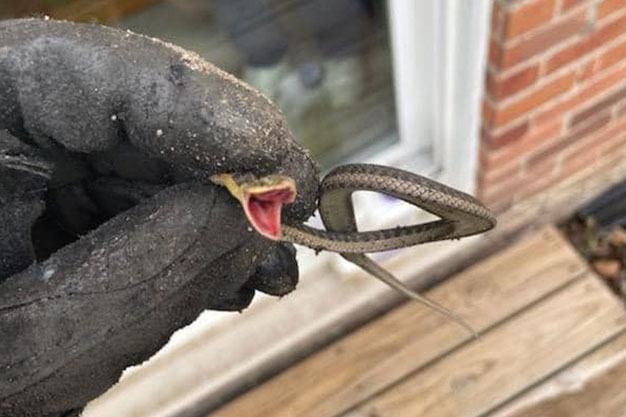
Dead Animal Removal
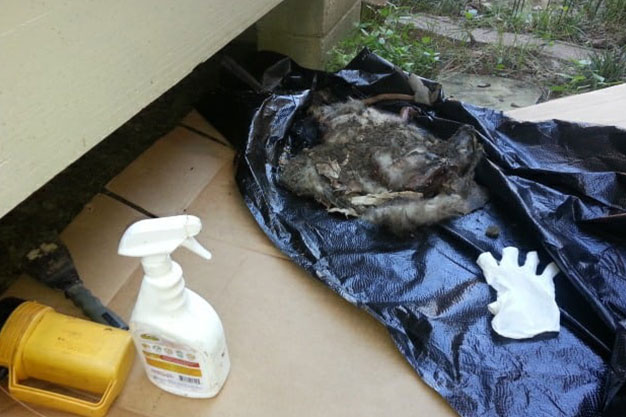
Trapping Strategy
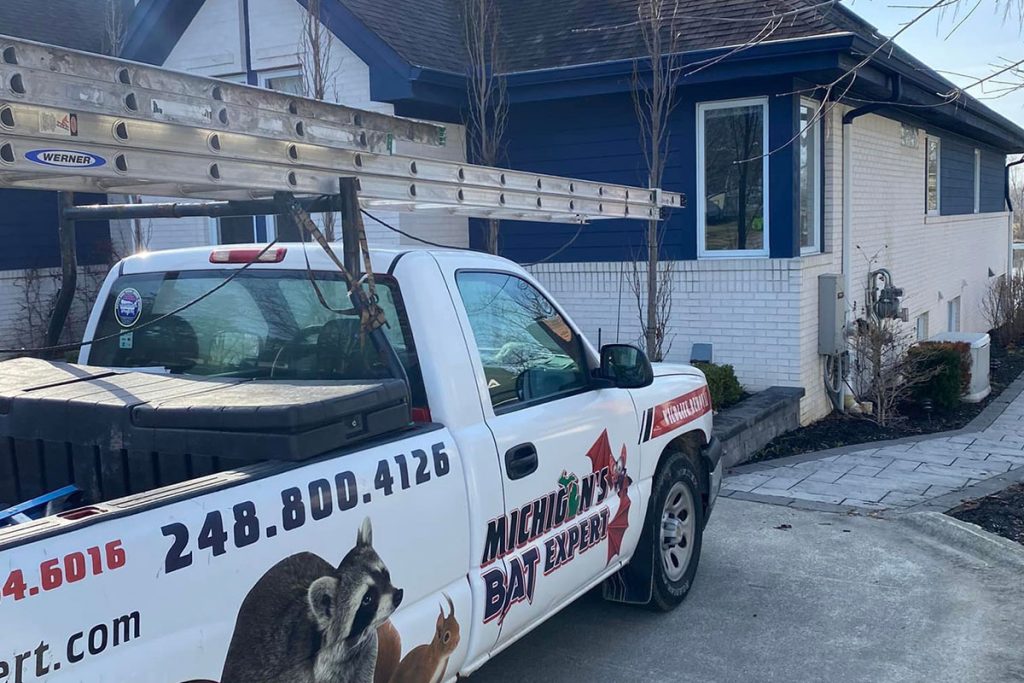
Common Wildlife We Trap & Relocate:
Michigan is home to a variety of wildlife species that can cause property damage or pose health risks. Our team safely removes:
Raccoons – Known for getting into attics, garages, and chimneys.
Squirrels – Often invade attics and walls, causing structural damage.
Skunks – Can burrow under homes and create strong odors.
Opossums – Frequently found under decks or sheds.
Groundhogs – Known for burrowing and causing damage to foundations.
Bats – It’s in our name. Bats are often found in attics and other warm places.
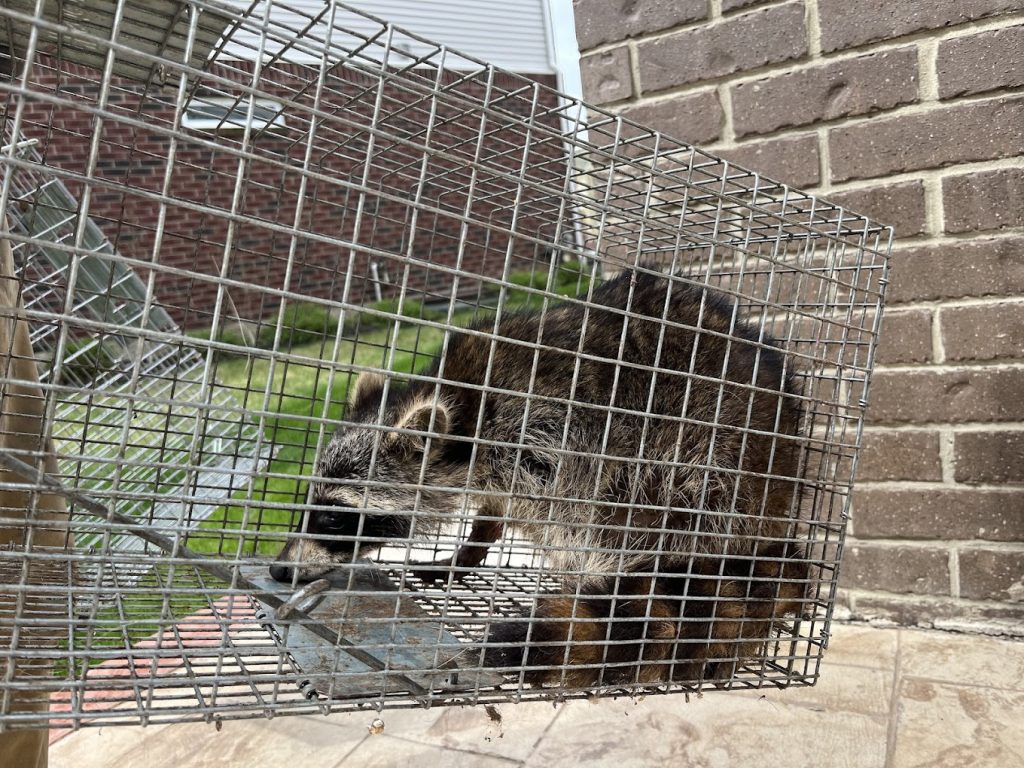
Raccoons are common all over Oakland County.
Just Some of Our Local Service Areas in Michigan:

Sam Sullivan
Sam Sullivan is the owner and lead expert at Michigan’s Bat Expert, specializing in humane bat removal and exclusion services based in Oakland County, Michigan. With years of hands-on experience in wildlife control, Sam has helped countless homeowners and businesses protect their properties from bat and wildlife infestations while adhering to Michigan’s strict wildlife laws.
His expertise lies in exclusion and prevention, ensuring that bats and wildlife are removed safely and never return. Sam is dedicated to ethical and effective solutions, using proven methods that prioritize both property protection and wildlife conservation. His commitment to excellence has made Michigan’s Bat Expert a trusted name in the industry.
